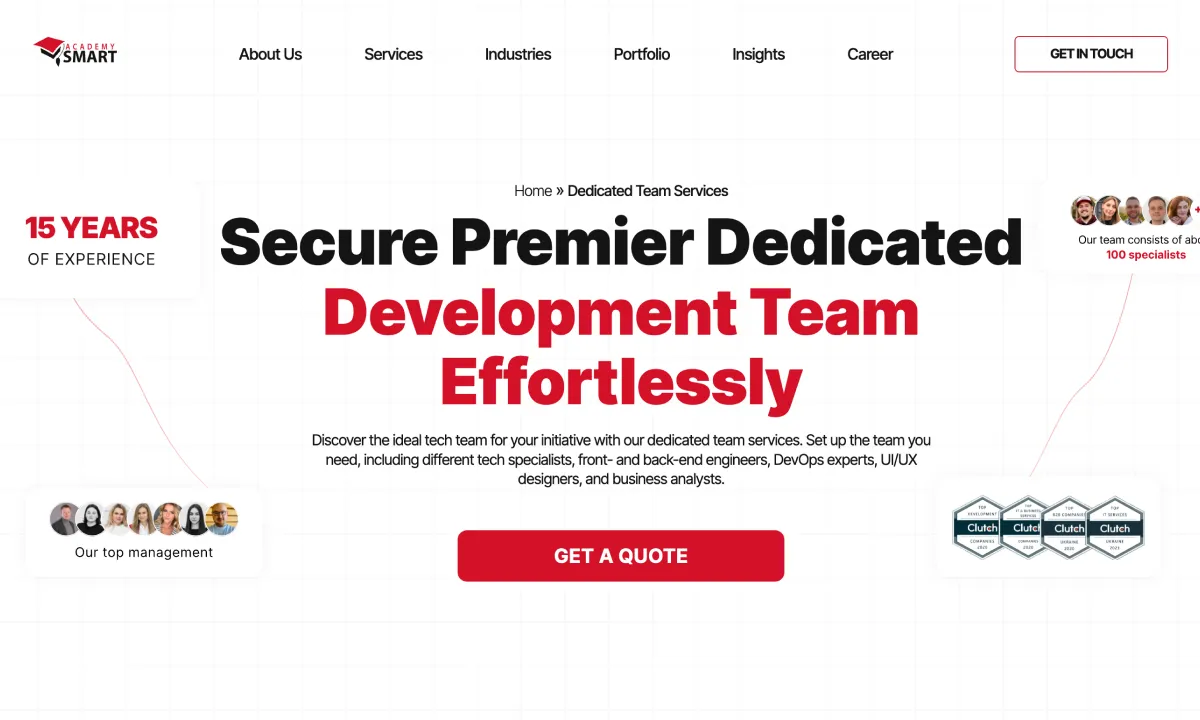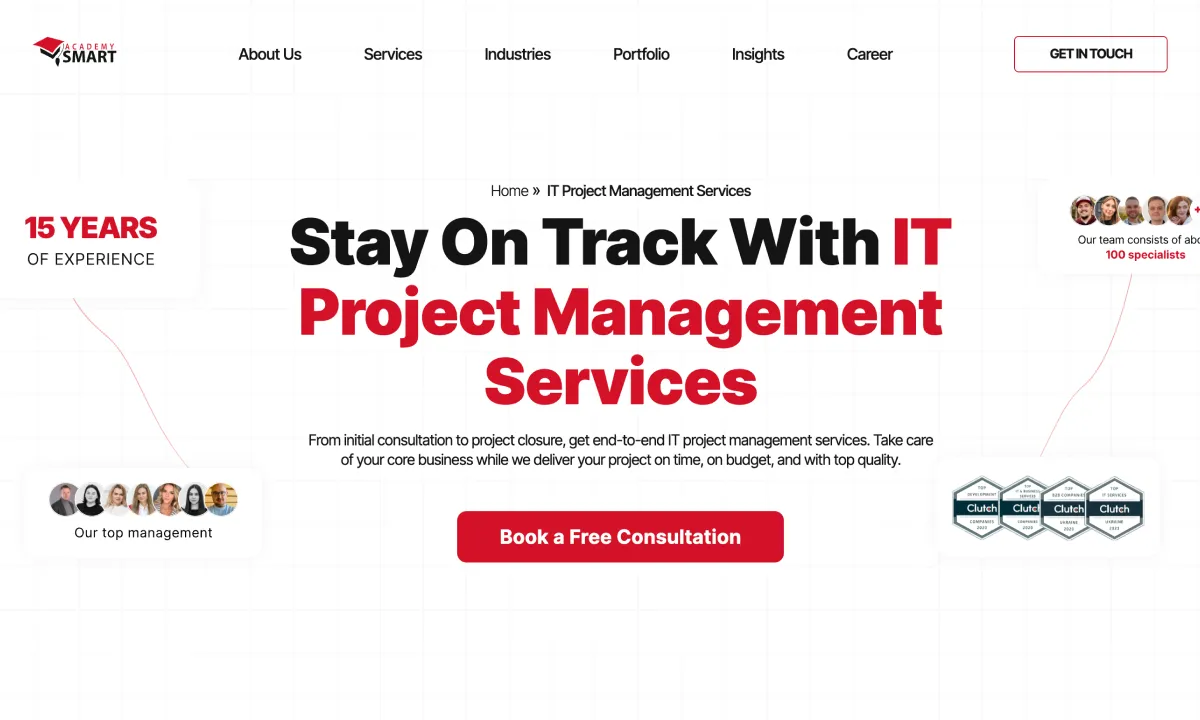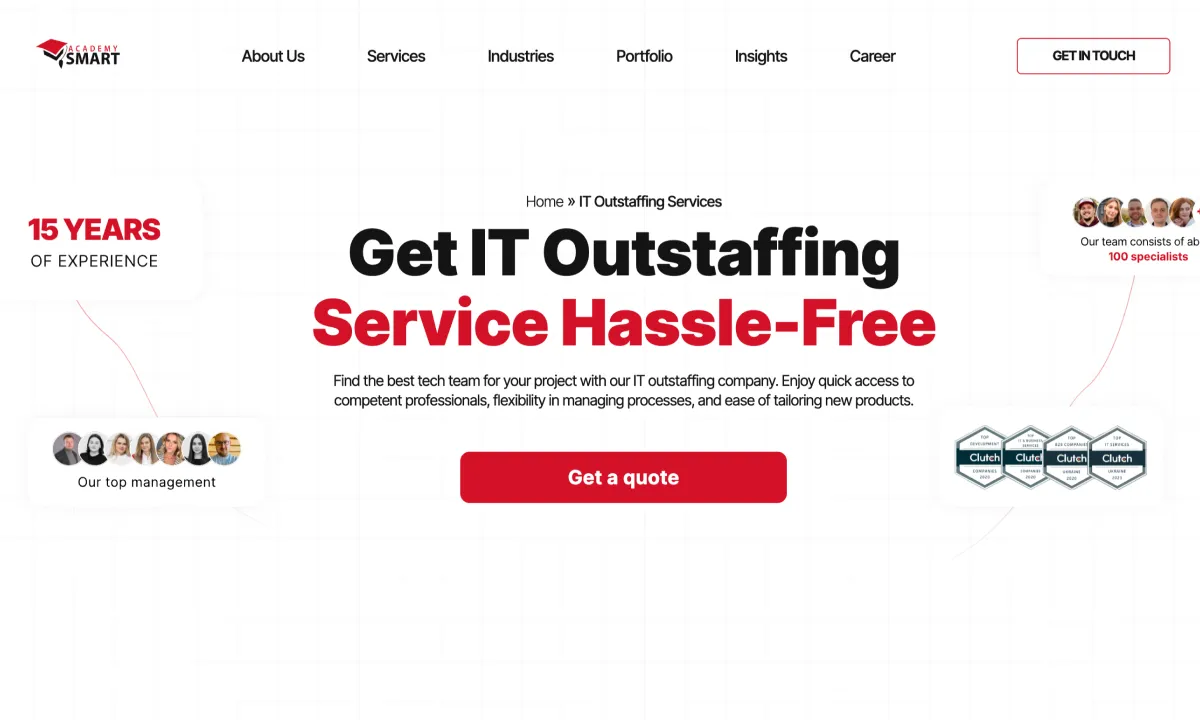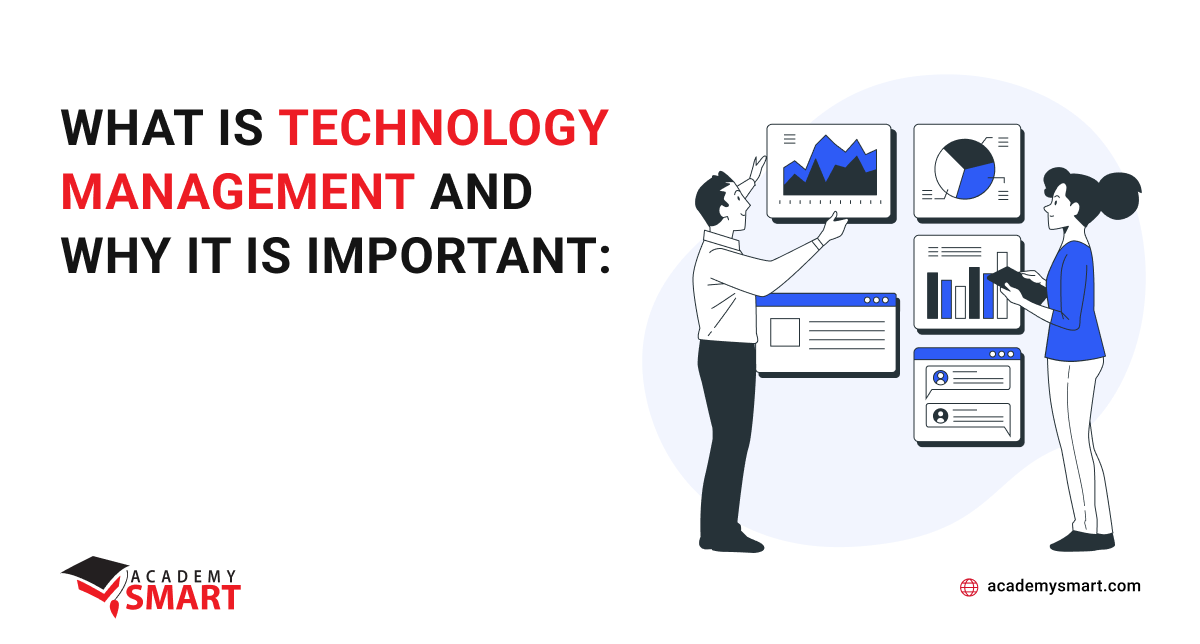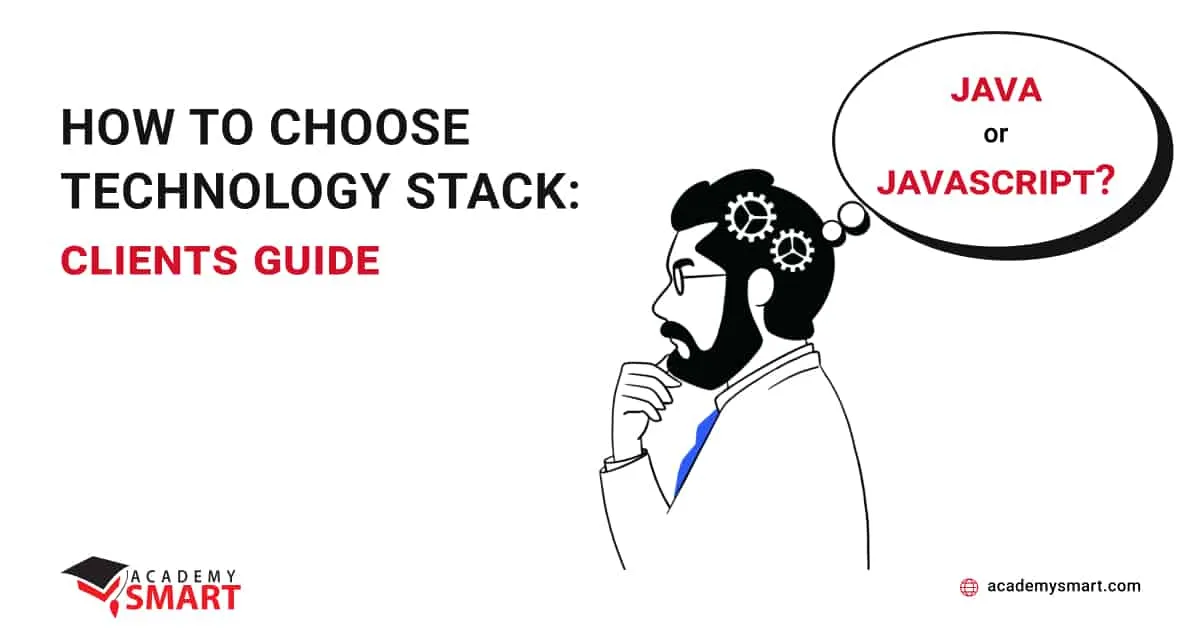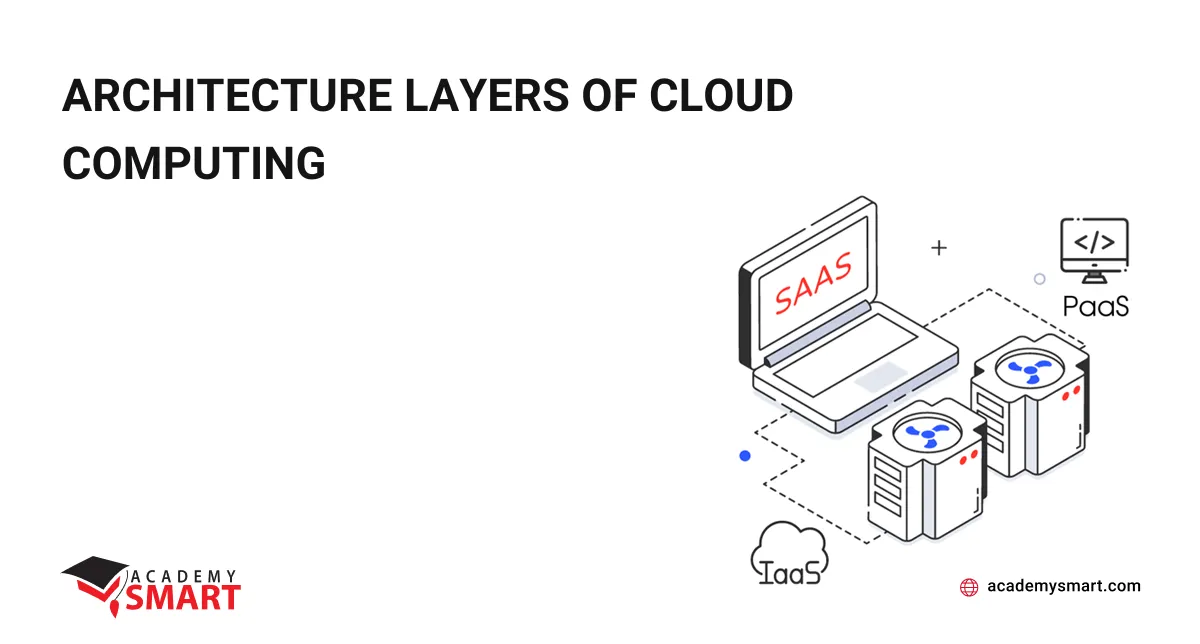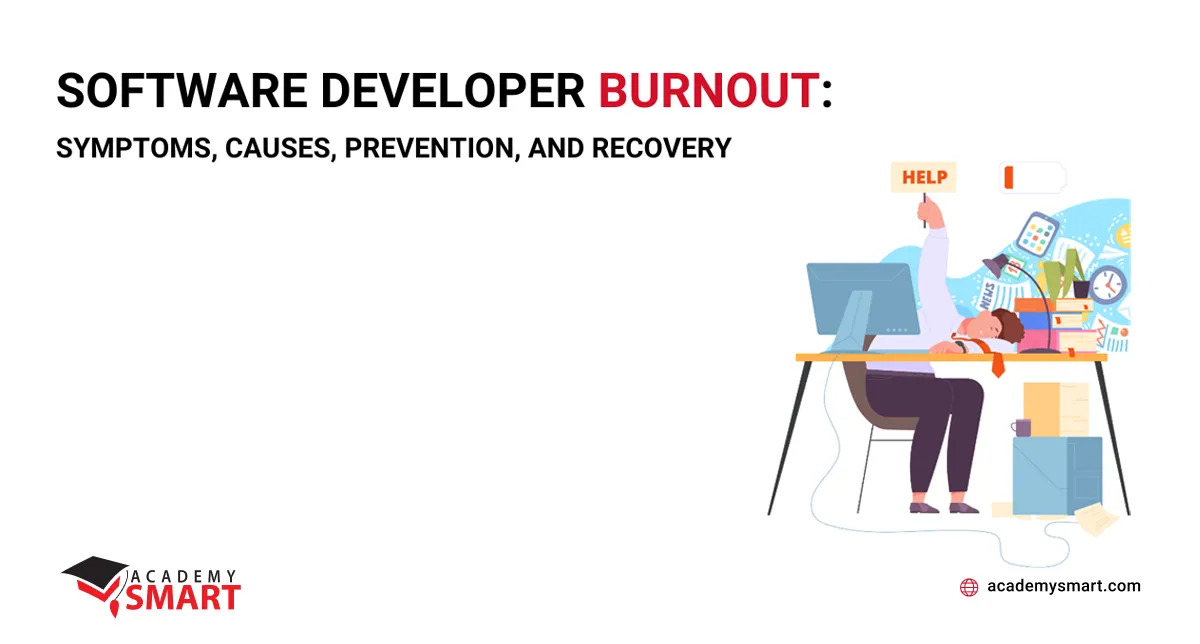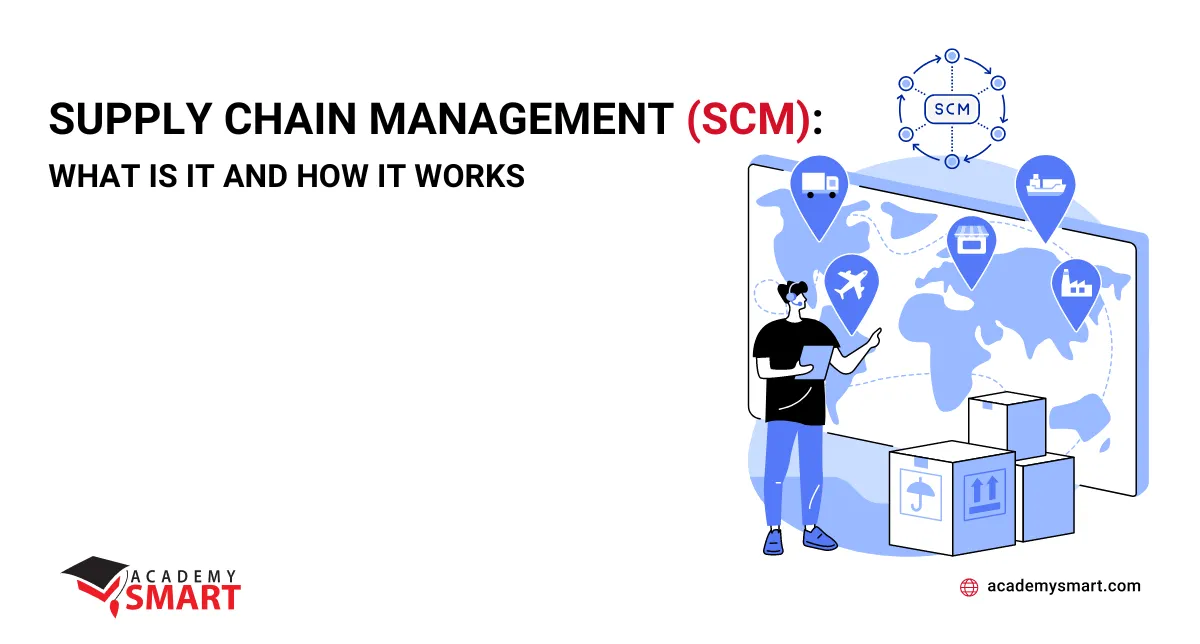
Supply Chain Management (SCM): what it is and how it works
Contents
Effective supplier management has always been a critical concern for enterprises. The sudden unavailability of essential resources, transportation delays, warehouse overcrowding, or communication challenges can lead to high costs, damaged reputation, and discomfort for those responsible.
Fortunately, digitalization has introduced accessible and practical IT solutions to optimize processes, automate routines, and reduce business costs significantly. This article will explore modern approaches to suppliers’ chain management and the specific software designed for this purpose.
What is a Supply Chain Management
A supply chain is a structured network of interconnected processes and activities that collectively ensure the efficient flow of goods and services from the initial sourcing of raw materials to the final delivery of products to customers. It encompasses the entire journey of a product through its various stages of production, distribution, and consumption.
The supply chain involves multiple stakeholders, including suppliers, manufacturers, distributors, retailers, and consumers, all working together to fulfill market demands and optimize the flow of goods. The primary objective of a supply chain is to deliver products to the right place, at the right time, and in the correct quantity while minimizing costs and maximizing efficiency.
What is a Supply Chain management? This complex of business processes implies the comprehensive control of goods and services flow. It ensures efficient coordination and management of all activities to maximize customer value and enhance a company’s competitiveness.
What does SCM mean? It includes scheduling and governing various crucial elements, such as developing a strategic supply plan, sourcing raw materials, overseeing production, managing distribution, and handling returns.
The primary goals of Supply Chain Management are cost reduction, improved efficiency, and preventing supply shortages. SCM meaning also implies enhancing operational efficiency, procuring product quality, and minimizing the risk of costly recalls and legal issues.
Why is SCM important
Companies with well-optimized supply chains can gain a competitive edge in the market. As SCM is often a crucial subdomain of IT management within companies today utilizing advanced digital solutions, it allows them to respond quickly to changing customer demands, adapt to market trends, and deliver products efficiently, leading to increased market share.
Supplier chain management holds significant importance for enterprises due to several key reasons:
- Cost reduction
SCM helps reduce production costs by ensuring a timely and efficient flow of raw materials to assembly factories. That minimizes the risk of material shortages and production delays, leading to cost savings. - Risk mitigation
SCM helps identify and mitigate risks within the supply chain, such as supply disruptions, quality issues, or geopolitical challenges. This proactive approach minimizes the impact of unexpected events on operations. - Inventory optimization
A well-executed SCM strategy can eliminate the need for expensive warehousing facilities. Products move swiftly from manufacturers to retail outlets, reducing warehousing and associated costs. - Demand forecasting
SCM allows businesses to predict stock shortages before they occur. By analyzing data like reorder frequency, order quantities, and order patterns, companies can anticipate and prevent potential sales losses due to stockouts. - Enhanced customer service
Effective SCM ensures that customers receive the right products in quantities, locations, and times they ordered. It improves overall customer service and satisfaction, increasing customer loyalty and retention.
So, why is SCM important and needed for your business? It streamlines processes, making them more efficient and adaptable. This agility allows companies to adjust to fluctuations in demand, market conditions, and external factors. You may find some examples of SCM applications in a brief video presentation of Academy Smart’s portfolio.
How does Supply Chain Management work
Suppliers’ chain management works by coordinating and optimizing the discharge of goods, services, and information across a network of suppliers, manufacturers, distributors, and customers.
SCM begins with planning. Companies set objectives, develop strategies, and forecast demand. It involves understanding customer needs, market trends, and historical data to decide what and how much to produce or source.
Once the plan is in place, the next step is sourcing. That implies selecting suppliers, negotiating contracts, and procuring raw materials or products. Companies aim to secure reliable sources while optimizing costs.
Then, the production phase kicks in. Manufacturers transform raw materials into finished products through various processes. SCM ensures efficient production schedules, quality control, and cost-effective operations. Here, managing inventory is a critical part of SCM. It aims to balance carrying enough stock to meet demand while minimizing excess inventory that ties up capital. Advanced IT systems help monitor and control inventory levels today.
The next stage is timely transporting products to distribution centers, warehouses, and retail outlets. SCM optimizes routes, transportation modes, and distribution channels to ensure convenient and cost-effective deliveries.
At the retail level, SCM provides products on shelves or online platforms. It also involves strategies like shelf space optimization and demand forecasting to meet customer needs. Supply chain management ensures that customers receive products as promised, with attention to accuracy, timeliness, and quality. It also handles returns and customer inquiries efficiently.
In addition to the direct path of goods from the manufacturer to the buyer, the supplier chain management also processes the reverse way in the form of returns. Returns management in SCM is a structured process that ensures returned products are handled efficiently and comply with company policies and regulations. It aims to minimize disruptions to the supply chain, control costs, maintain customer satisfaction, and gather valuable data for process advancement.
Throughout the entire supply chain, information flows back and forth. That includes real-time data on inventory levels, order status, demand changes, and production updates. IT systems play a crucial role in facilitating this information exchange. Companies analyze data and performance metrics to identify bottlenecks, inefficiencies, and areas for optimization. Moreover, SCM addresses risks like supply disruptions, quality issues, and market volatility, including risk assessment, mitigation strategies, and contingency planning. That’s why SCM is an ongoing process that strives for continuous improvement.
Since businesses are fundamentally different in size, product groups, and consumer audience, it is unsurprising that they use various supply chain management models. These models are structured frameworks or representations used to analyze, design, and manage a supply chain’s components and processes. They help companies make informed decisions and optimize their supply chain operations.
There are several standard supply chain models, each with its own focus and purpose:
- Linear model
This model represents a straightforward, sequential flow of goods from suppliers to manufacturers to distributors and finally to customers. It is a basic representation of the supply chain process. - Network Model
This model views the supply chain as a complex network with multiple suppliers, manufacturers, warehouses, and distribution centers interconnected. It allows for a more holistic understanding of the supply chain’s dynamics. - Demand-Driven Model
This approach emphasizes responsiveness to customer demand. It involves strategies such as just-in-time inventory management and dynamic supply chain adjustments to meet fluctuating customer needs. - Agile Model
The agile supply chain model focuses on flexibility and rapid response to changes in the market. It often involves shorter production runs and quicker adaptation to customer preferences. - Lean Model
Lean principles have to minimize waste and maximize efficiency. This model seeks to reduce excess inventory and streamline processes to cut costs while maintaining quality.
In summary, SCM includes efficient planning, sourcing, manufacturing, delivering, and returning products. These interconnected components ensure smooth product flow, accurate information sharing, and sound financial management throughout the supply chain.
What is SCM Software
Suppliers’ chain management software is a specialized category of applications designed to facilitate and optimize supply chain operations. It helps businesses efficiently manage the gush of goods, information, and finances across their supply chain network. It is clear that in difficult economic times when enterprises are forced to invest in cost reduction, SCM systems are considered attractive ideas for full-stack development.
Here are some key characteristics and specialized must-have features of SCM software:
- Inventory management
SCM application provides tools for tracking and managing inventory levels. It enables companies to optimize stock levels, reduce carrying costs, and avoid overstocking or stockouts. - Order management
SCM software streamlines the order-to-cash process. It manages customer orders, order fulfillment, and tracking, ensuring timely and accurate deliveries. - Supplier relationship management
SRM features in SCM apps help companies manage supplier relationships effectively. It includes vendor evaluation, supplier performance monitoring, and collaboration tools for seamless communication. - Transportation management
SCM solutions often include transportation management features. They optimize shipping routes, select the best carriers, and ensure timely and cost-effective product deliveries. - Warehouse management
Warehouse management capabilities help companies optimize warehouse operations. They include inventory tracking, picking, packing, and shipping features within warehouses or distribution centers. - Production planning
Some SCM apps offer modules that allow businesses to plan and schedule manufacturing activities efficiently. It ensures that production aligns with market requests. - Demand prediction
Many SCM solutions incorporate demand forecasting capabilities. They analyze historical data and market trends to predict future product needs accurately. - Compliance and risk management
SCM software often includes tools to manage regulatory compliance and mitigate supply chain risks. It helps companies identify and address potential disruptions and compliance issues. - Integration
Integration capabilities are crucial for connecting SCM applications with other enterprise systems, such as Enterprise Resource Planning (ERP) and Customer Relationship Management (CRM) systems. - Real-time visibility
Many modern SCM systems provide real-time visibility into supply chain activities. They offer dashboards and analytics tools to monitor and analyze key performance indicators (KPIs). - Mobile accessibility
Now, it is standard for SCM software solutions to have mobile-friendly interfaces, allowing users to access supply chain information and perform tasks on the go.
Today’s supplier chain management software increasingly incorporates advanced technological solutions, such as digital communication channels for document exchange, cloud services, GPS, RFID tags, Internet of Things (IoT) solutions, blockchain, and Machine Learning systems. Our company has extensive experience developing and integrating these information systems, as evidenced by the examples showcased in our portfolio.
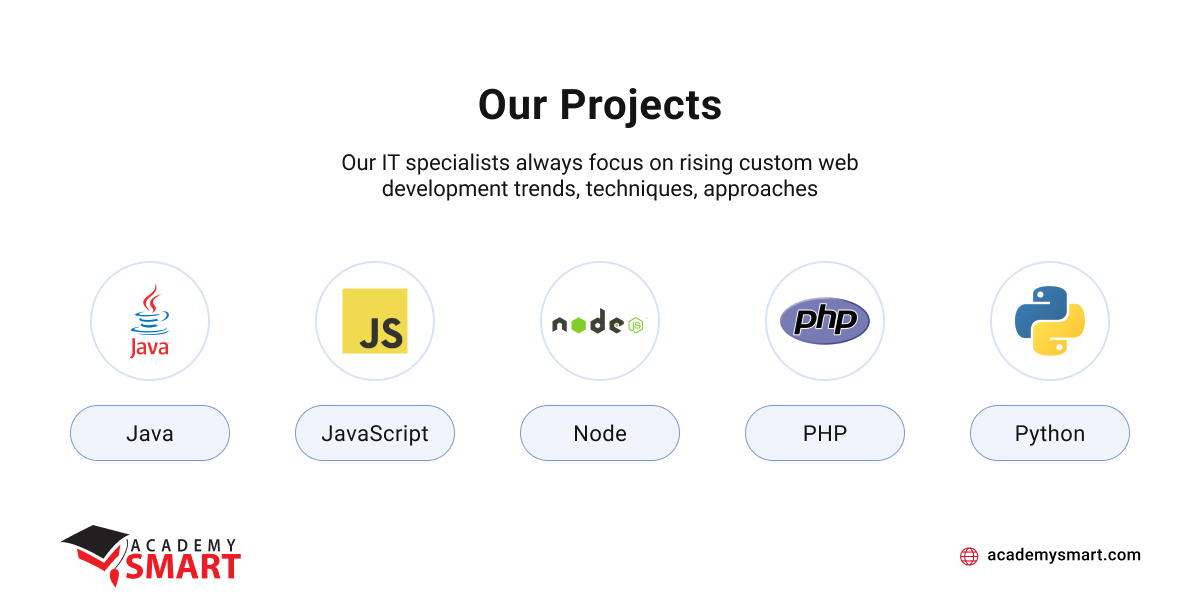
Academy Smart’s portfolio
How Academy SMART can help you
Since our IT agency has been engaged in full-stack application development for enterprises from various sectors of the economy for more than 13 years, we are glad to offer you experienced and talented specialists in the fields of web and mobile development, programming, cloud computing, artificial intelligence, who will ensure the creation, modernization and technical support of your Supply Chain Management systems at the high standard level of quality.
A variety of options are available to hire remote employees from our staff, including outstaffing specific IT experts, dedicated development teams, and outsourcing turnkey SCM software development.
Are you ready to reduce operating costs significantly with a reliable, high-quality, and efficient SCM application? Get in touch to introduce us to your business needs.
Management Supply Chain: Frequently Asked Questions
What is supply management in supply chain?
It is the process of efficiently sourcing, procuring and managing the goods and materials needed to meet production and customer demand, ensuring a seamless flow of resources within the supply chain. It involves activities like supplier selection, negotiation, and inventory management to optimize the availability of necessary resources while minimizing costs.
What are the main functions of SCM?
The main functions of Supply Chain Management include:
- planning;
- sourcing;
- manufacturing;
- delivering;
- returning.
Book a free consultation

Reach out to start talking today!

